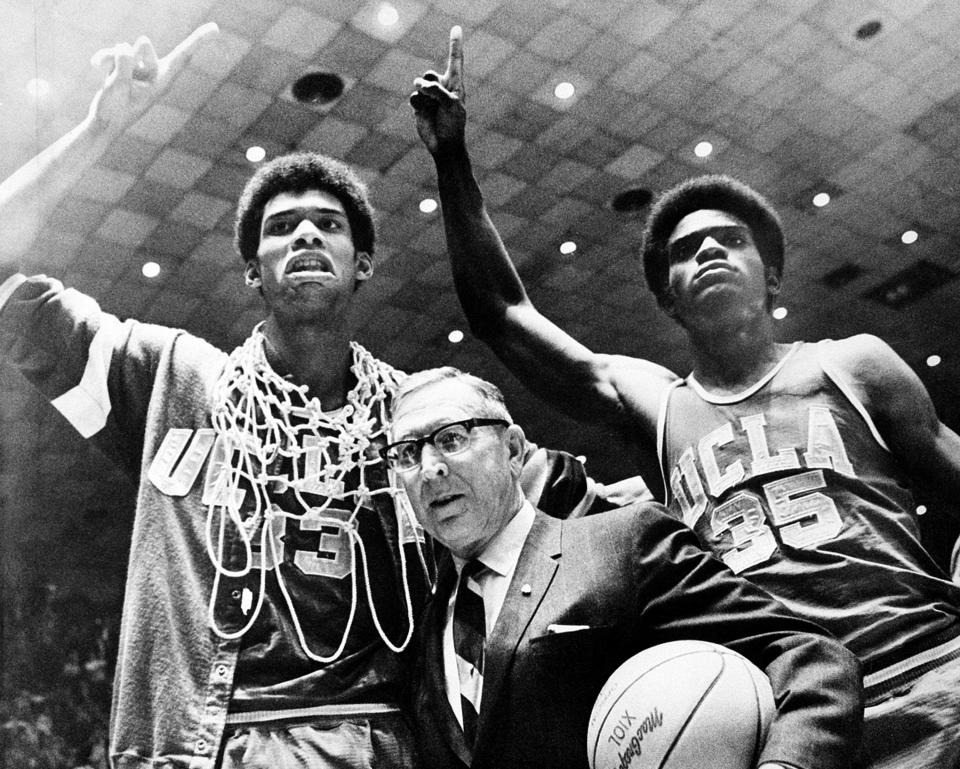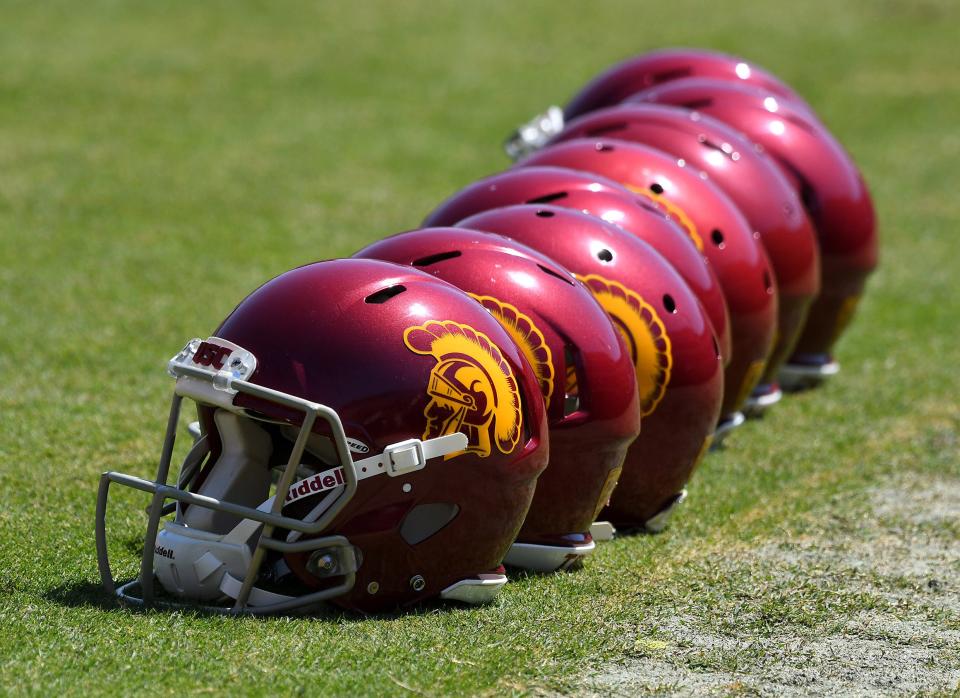John Wooden returns home: What UCLA, USC's move to the Big Ten means for NCAA football

What would John Wooden be thinking right now?
The UCLA Bruins and the BIG Ten? Who in their right mind would put a west coast team in the Midwest? Travel over 2,000 miles to return home and play his alma-mater the Purdue Boilermakers, or defeat the Indiana Hoosiers?
Well, such an idea is a reality now as the Bruins and rival USC are set to join the BIG 10 starting in the 2024 season. The shocking move isn't necessarily one that goes without precedent.
The conference just made its glaring response to the SEC adding two power programs in Texas and Oklahoma, who're set to join in 2025, and there's some speculation that the BIG 10's conference eating tirade may not be over. There could be more schools to poach.

Either way, having the two Los Angeles schools is only the next bizarre thing to happen to the college landscape. How could this relationship play out? What's it mean for the rest of the NCAA? What about the NCAA as an organization itself? The future of college football?
These are questions we're all asking.
What does it mean for the Big 10?
For the BIG 10 this is a massive addition, stretching the conference from coast-to-coast while stationing teams in the country's three biggest markets, New York (Rutgers), Los Angeles and Chicago (Northwestern).
That's not even mentioning the gains of having two more legacy programs who've each scored numerous national titles over their history. But is the move in the best interest of USC and UCLA?
Payout wise, sure. There's really no argument in seeing that the BIG Ten can offer more money than the PAC-12. Competition wise? It's fairly similar to Texas and Oklahoma joining the SEC.
The transition is going to be difficult.

That's not to say either will necessarily struggle, especially in basketball, but playing football in the BIG Ten is certainly an upgrade from PAC-12 members not named Oregon, Washington and Stanford.
The Bruins, though, might see some difficulties on the football field. They already struggle as is in the PAC-12 and have been treading the realm of relevancy for years now. Chip Kelly might have invigorated some fire to the program last season, but the flames were quickly fanned out, and now they're without Dorian Thompson-Robinson.
Ever since receiving the crushing blow to its football program via sanctions from the Reggie Bush scandal, the Trojans haven't been much of a force, either. But Lincoln Riley is supposed to change all that for USC, and with him at the helm, there's potential.
Plus, now the historic "John Wooden" rivalry between UCLA and Purdue can rekindle.
What about the rest of the NCAA?
Many could say the ball is in the SEC's court, but really, it's in Notre Dame's. The Big Ten are said to be putting Oregon and Washington on standby as they await the Irish to make a conference decision.
Sources: Oregon and Washington have been told by @bigten that it is standing pat for now. Waiting on a decision by Notre Dame.
— Dennis Dodd (@dennisdoddcbs) July 1, 2022
Will they continue to try and survive as an Independent? Will they fulfill the alliance with the ACC and commit to join? Or will they use their leverage to squeeze more money out of the Big Ten, who've always wanted the school?
There's a lot for the Irish to consider, and a lot of contractual implications that would make exiting the ACC agreement difficult. But it's possible, and with its long-standing rival USC joining the conference, that could certainly move the needle given the conference will have four of its main rivals (Michigan, Michigan State, Purdue), and perhaps more if they poach Stanford.
The future of college football
While the Big Ten's and SEC's moves draw a lot of intruige, the sport seems to continue to get away from what made it so special in the first place.
Tradition.
Football is football, it's always going to be entertaining, and sure, it might be fun to watch USC take on Ohio State, or UCLA battle with Michigan in basketball, but what about the true rivalries and all of the quirky things that make college football exciting?
Since the creation of the College Football Playoff, bowl games continue to mean less, especially in the current four-team format, which is a shame considering how important those New Year's Six games meant for programs, especially in the group of five.
Now it's nothing more than just another game to play. Expanding the playoff would improve things, but it's a decision that continues to get delayed.

The consolidation of schools continues down the path of a mega conference, or perhaps an entirely new league that breaks away from the NCAA. With the addition of USC and UCLA, the Big Ten might even consider a bid for a conference title game at LA's SoFi stadium, potentially removing the game from the heart of its conference.
There's so many roads the future of the sport could follow, so many decisions yet unmade. But with the way things are headed, college football is set to be dramatically different from what it was in the 90s or 2000s.
The days of watching Vince Young cross the goal line, or Boise State use a monumental effort to defeat Oklahoma, or even rivals USC and Stanford playing one another for the right to the PAC-12 title seem to be all but over.
This is a new era of college football. Whether it's for the better, that's up for the individual to decide.
Contact reporter Devin Voss at dvoss@gannett.com or follow him on Twitter at @DevinVoss23.
This article originally appeared on The Reporter Times: John Wooden returns home: What UCLA, USC's move to the Big Ten means for NCAA football

